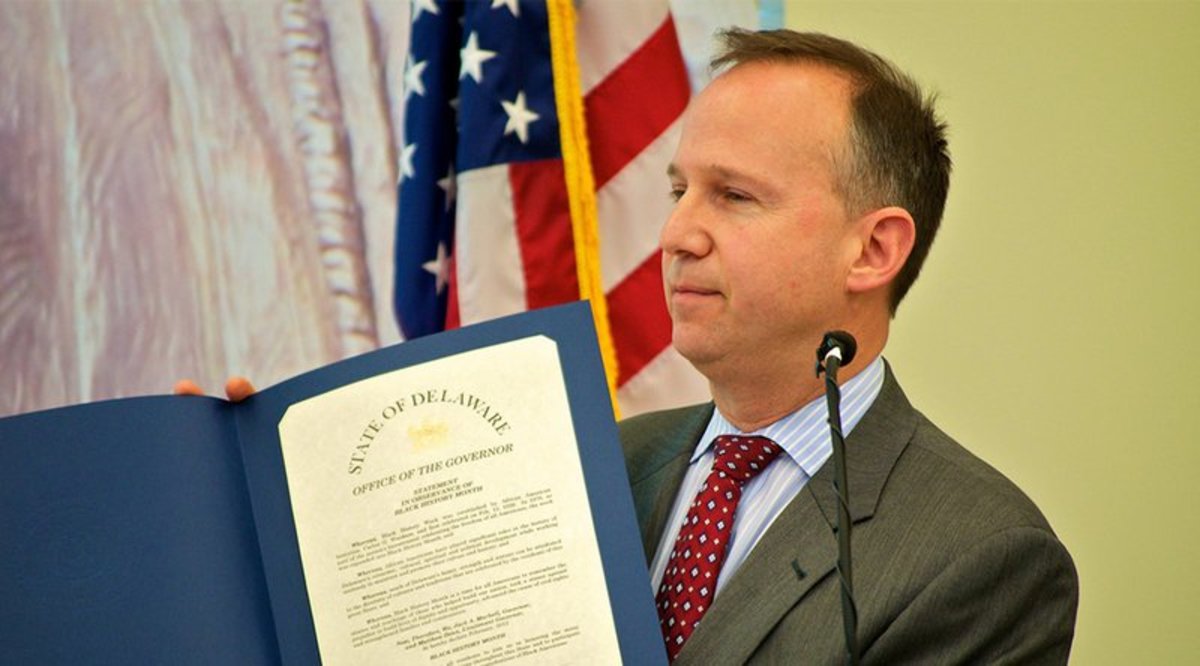
Delaware, the state that incorporates most companies, is exploring the use of blockchain technology to make its paperwork cheaper and more efficient, The Wall Street Journalreports. The effort, while still in its early stages, could change some of the most basic back-office functions for private and public companies alike.
“This is something we’re very interested in,” said Delaware Gov. Jack Markell. “We think the benefits could really be tremendous.” Markell’s office has already begun working with the state’s powerful bar association to determine how best to incorporate the technology into state law and will start a pilot program to move state archival records onto an open distributed ledger.
Symbiont, a smart securities company created in 2015 to interface traditional financial markets and cryptographic blockchain technology, is participating in the Delaware blockchain initiative. After securing $1.25 million of seed funding from influential financial market leaders including Duncan Niederauer, former CEO of the New York Stock Exchange (NYSE), soon after launch, Symbiont closed a $7 million funding round in January, valuing the company at $70 million.
The blockchain system will be faster and cheaper than the existing process since it automates a number of processes, including share registry, capital-table management and shareholder communications, said Symbiont CEO Mark Smith. The system likely will benefit private companies that incorporate in the state by making it easier to keep track of all the equity issued and the different shareholder rights after multiple financing rounds.
More than 1 million companies are incorporated in Delaware, including half of all publicly traded companies in the U.S. and 65 percent of the Fortune 500. Incorporation services have been an important part of Delaware’s economy, but the state seems to be losing its competitive advantages to other business-friendly jurisdictions in the U.S. and abroad, which are making efforts to attract new businesses. Delaware must now make special efforts to keep companies in the state and attract new ones, and a simplified and more efficient record-keeping system could certainly help.
"Delaware has long been the jurisdiction of choice for the most innovative companies in the world," Markell said in a press release. "The Delaware Blockchain Initiative demonstrates the state's commitment to ensuring this remains the case for the growing blockchain technology sector. By creating the opportunity for a broad range of corporations ‒ from Fortune 500 companies to startups ‒ to take advantage of distributed ledger and smart contract applications, we are laying the groundwork for a more modern, secure and transparent business environment for years to come."
The governor’s office press release confirms that the state is working closely with Symbiont to develop the technical aspects of the Delaware Blockchain Initiative. Pillsbury Winthrop Shaw Pittman LLP, the leading blockchain technology legal team, is developing the legal infrastructure.
"It is our mission at Symbiont to work with market-leading institutions, and we are delighted to work with the State of Delaware," said Smith. "Given its leadership position in incorporation services, it's an ideal proving ground for smart contracts."
On May 2, Markell unveiled the details of the Delaware Blockchain Initiative at the opening keynote presentation at the Consensus 2016 conference in New York City.
At Consensus 2016, after recalling Delaware’s track record in deploying new technology in a timely manner in state administration, including electronic corporate record transmissions, electronic director votes and virtual stockholder meetings, Markell explained how the state would be proceeding in technological and regulatory direction with blockchain, International Business Timesreports.
The governor emphasized that the initiative is expected to help the private companies that need to keep track of shareholder rights after multiple rounds of financing, each with different terms and conditions.
"We see companies allocate significant financial resources to correct and validate stock authorization and issuance errors that could have been correctly and seamlessly handled from the outset," said Markell. “"Distributed ledger shares hold the promise of immediate clearance, immediate settlement and bring with them dramatic increases in efficiency and speed in the sophisticated commercial transactions for which Delaware is known.”
"I think we are a good fit for Delaware because we have a very flexible and extensible system,” added Symbiont’s Smith. “So our platform is really designed around smart contracts and being neutral to the underlying ledger layer. It's not about the ledger layer for us, it's about the intelligence of the smart contracts."
Smith mentioned a new initiative called Smart Loans, soon to be incorporated in Delaware.
Photo Jeffrey / Flickr(CC)










